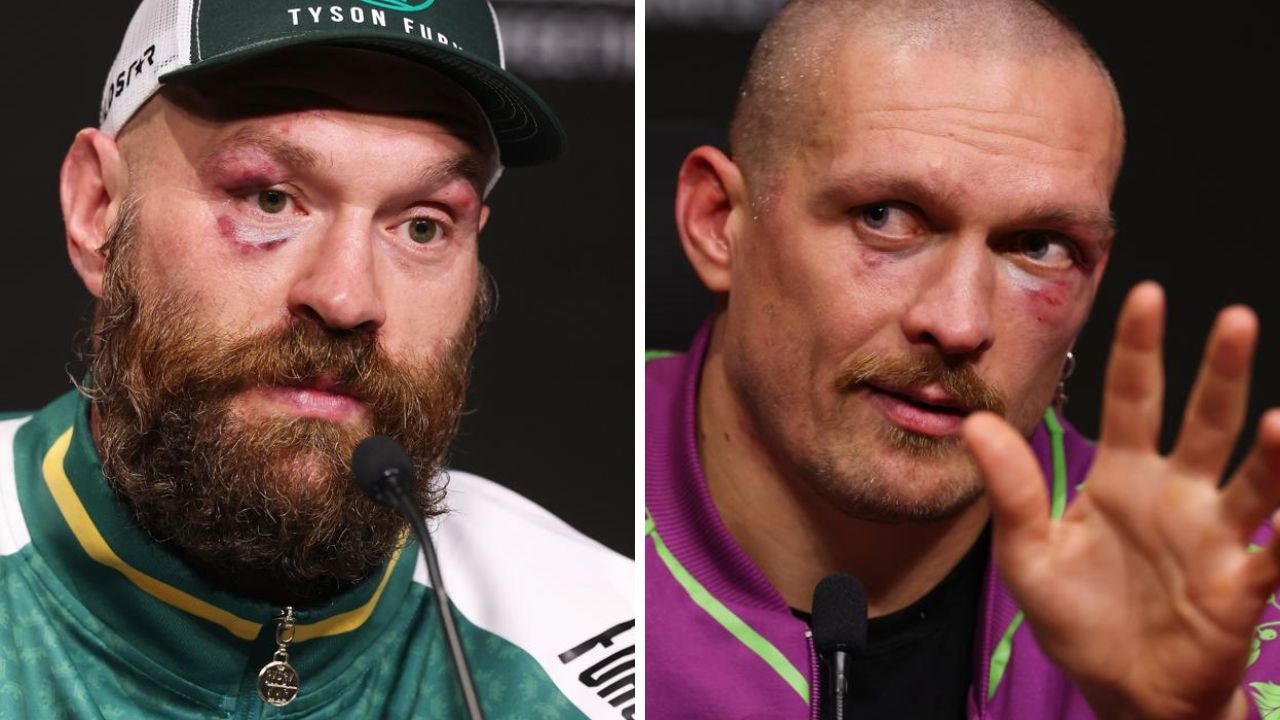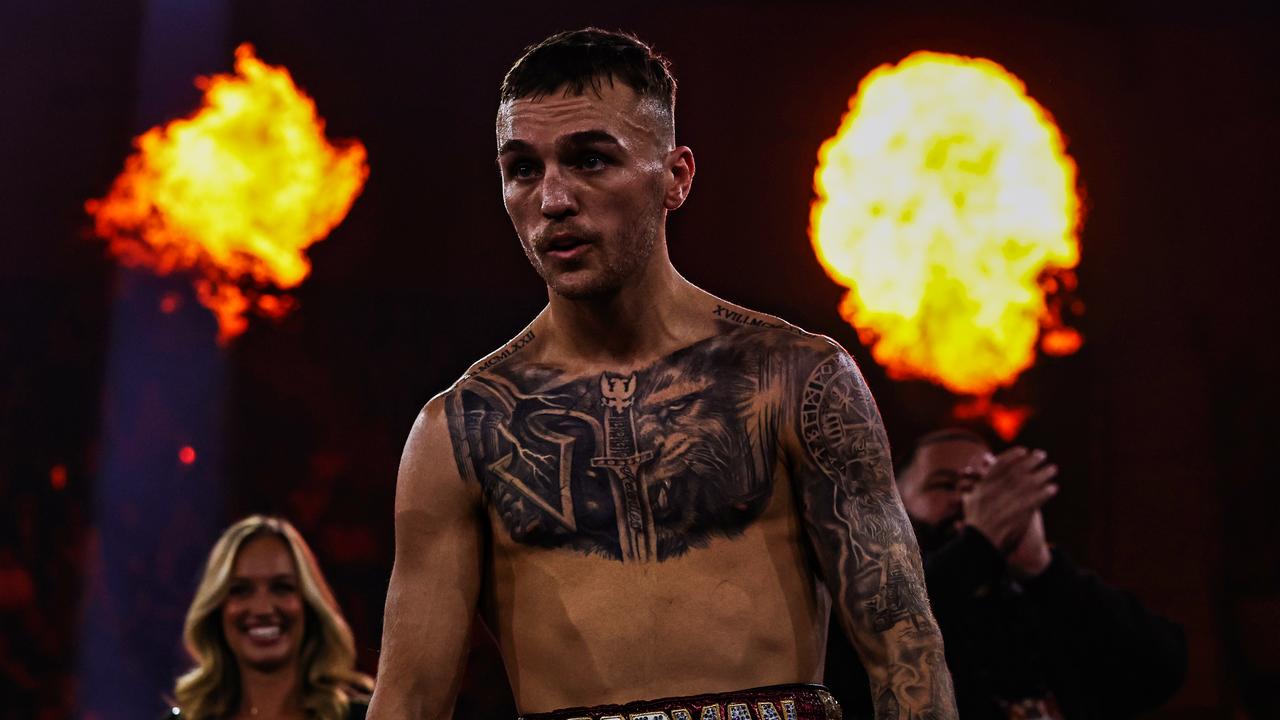Respected administrator Cam Vale on his unlikely move to become a professional wrestling entrepreneur with the Starrcast fan fest in Ballarat
Balancing the books for AFL and NRL clubs and then leading organisations like Hockey Australia and Baseball Australia, Cam Vale was a steady and trusted operator. He tells SHANNON GILL how a career U-turn led him to the crazy world of professional wrestling.

Boxing/MMA
Don't miss out on the headlines from Boxing/MMA. Followed categories will be added to My News.
“It’s definitely shocked a few people,” laughs Cam Vale about his new career direction.
From the finance departments of Carlton, St Kilda, North Melbourne and the Melbourne Storm in the AFL and the NRL, to becoming CEO of Baseball Australia and Hockey Australia, Vale built a reputation as a safe pair of hands within Australian sport administration circles.
Yet over the last 12 months he’s left behind the staid world of balance sheets, participation and pathways.
Now it’s turnbuckles, steel chairs and elbow drops.
In sports administration’s own version of ‘Breaking Bad’, Vale has embraced the fantastical and become a professional wrestling promoter.
“I certainly didn’t come out of any closets or basements, I’ve come out of the boardroom to declare my wrestling fandom,” Vale tells Code Sports.
“People who know me well know that I’ve always been a fan, but it’s a surprise to them that I would be in the business the way I am.”
Dabbling in wrestling for the last 12 months, this weekend in Ballarat represents Vale’s biggest splash, and risk, as the Australian driving force behind the Starrcast festival.
Backed by the Victorian government, the four day event will showcase local and international wrestling bouts as well as fan events and shows involving some of the sport’s most legendary figures, and some of Vale’s own heroes, like Bret Hart and Eric Bischoff.

How Vale has ended up in this crazy world is quite a tale.
After resigning from Baseball Australia in 2021 Vale started consulting with sports tech companies including Triller TV in the US that features Boxing, MMA and wrestling broadcasts. As Vale expanded on his own wrestling fandom to the company’s co-founder Mike Weber, encouragement came.
“He said ‘why don’t you have a crack at doing something in Australian wrestling and bring a few of these international events into the country,” he says.
That comment and subsequent introductions to industry figures set off the last 12 months of trying to turn fandom into a livelihood.
“The biggest difference from the traditional roles I’ve had is that you’re putting your own finances on the line,” he says.
“It’s one thing to be a paid CEO and if it doesn’t work you get sacked, versus it doesn’t work and you’re the one that’s funding the event.”
First there was a small event in Wagga under his Oceania Pro Wrestling brand, and now it’s the more ambitious Ballarat extravaganza partnering with American podcaster-turned-fan event mogul Conrad Thompson to take the Starrcast fan event outside of the US for the first time.

The comparison between his old world continues to amuse Vale. From the certainties of holding indoor events as opposed to outdoor sports where the weather can dictate crowds, to the seemingly trivial matters of calling wrestlers ‘athletes’’ rather than ‘talent’ or whether to book flights under wrestlers’ stage names or legal names.
And while it’s been an on-the-job crash course, Vale believes the conventions of traditional sport have a lot to offer the professional wrestling world.
“There is a lot to learn from traditional sports; whether it’s stats and the data or the way it’s presented and I think wrestling fans also crave that respect and the credibility that mainstream sport has.”
This all aligns with the global trend of pro wrestling gaining more mainstream legitimacy.
Hot on the heels of the WWE’s flagship Wrestlemania event attracting 145,000 in the US last weekend and a broadcast rights deal for the US with Netflix that threatens to reshape the landscape for all sports, the lines are blurring as to how wrestling is perceived.
Historically written off as silly pantomime by non-fans, there’s no denying that today it is analysed in equally passionate measures for the athletic and the artistic in the ring, and the creative storytelling outside of it.
“The naysayers say it’s fake and it’s this and its that,” Vale says. “I don’t watch cooking shows, but I don’t go and bag out people that watch cooking shows.”

When he talks his his old sporting executive colleagues, there’s even a hint of envy as to the possibilities in his new environment of scripted outcomes.
“I joke with some of my mates, ‘you wish you had that ability to be able to reverse engineer how your events are going to run’,” he says.
“Wrestling is a blend of entertainment and traditional sport because they’re such great athletes and great performers. So when you blend it all together it is actually a really exciting product to work on.”
Some trepidation and perhaps some exhaustion will mix with that excitement this weekend as Starrcast rolls out.

Vale is hopeful that success will mean he can secure events on an annual basis at a time when demand for the product globally is increasing.
Meanwhile he continues to learn more about his brave new world.
“Whether it’s hockey or baseball or the footy clubs, you’ve got to go through a learning curve in the first 12 months and it’s probably taken until this second event to think ‘okay, now I’m getting a sense of it’.”
Wrestling lifers have also embraced the new promoter who is unconventional in his overwhelmingly conventional background,
“Scott D’Amore, who was the boss of TNA wrestling in the US and has been really helpful to me, introduces me as ‘the traditional sports guy’. So I’m running with that,” he laughs.
More Coverage
Originally published as Respected administrator Cam Vale on his unlikely move to become a professional wrestling entrepreneur with the Starrcast fan fest in Ballarat





